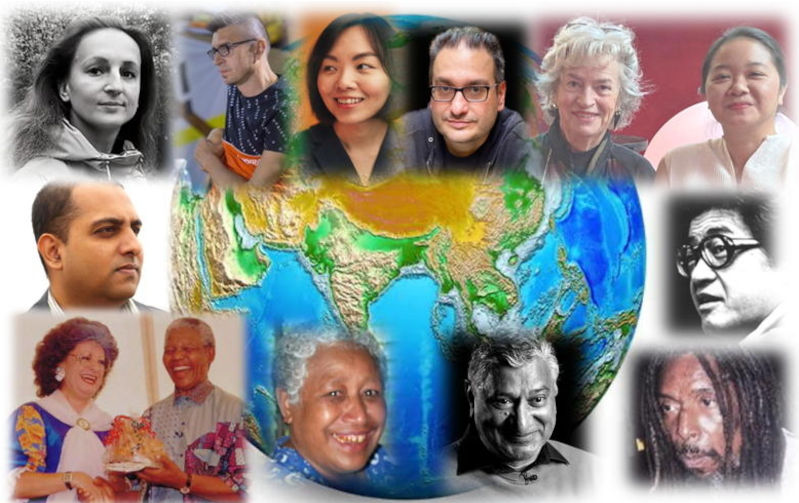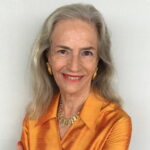There’s an abundance of interesting theatre out there in the non-Anglo worlds that could inspire, amuse and surprise Australian audiences. Yet, we seldom get to see those plays.
For this article, let’s define Anglo as continental Europe, UK, US, Australia and Russia (eg, Chekhov).
When I started reviewing theatre in 1975, mostly plays on our stages were American classics, Shakespeare, Irish pub plays, Alan Ayckbourn and his ilk, the Australians David Williamson, Patrick White and others.
The next phase was the immigrant stories, often dealing with nostalgia, alienation and discrimination. Many were very funny and took the mickey out of migrants. Con the Fruitier comes to mind. Next were the refugee plays, as distinct from immigrant stories, such as The Rainbow Dark and The Pacific Solution.
Then plays by Aborigines for stage became mainstream including Rainbow’s End by Jane Harrison, The Dreamers by Jack Davis and many others. Aboriginal actors, directors, playwrights are now well-established theatre professionals. Then came the mainstreaming of LGBTQIA+ plays, and the now fully fledged gay theatre companies. Recently there have been more plays about the disabled and the neurologically diverse. Clearly there is a huge variety of issues explored on our stages. But these wonderful stories are mostly set here.
We don’t often have the opportunity to see non-Anglo plays. There are exceptions. The Old Fitz recently produced The Face of Jizo by Hisashi Inoue. The theatre was literally packed to rafters and received excellent reviews, demonstrating that we do crave more plays from other cultures.
This prompted Scene Theatre Sydney to explore plays from other countries. After reading dozens of scripts and talking to many helpful theatre professionals, we decided to offer audiences plays from nine non-Anglo countries, and we curated WORLDS ALIVE 2025.
We found several wonderful plays from Papua New Guinea and settled on Which Way, Big Man? by Nora Brash, OBE. We secured the permission from the playwright’s family to include this cheeky comedy. It’s about the transition to independence and makes serious fun of PNG’s new bureaucrats.
From Jamaica we sourced Masqueraders, the first Rastafarian play to be set in a formal theatre. Villagers present a play-within-a-play. Pieter-Dirk Uys, South Africa’s Barry Humphries, is letting us include a comic monologue where Nelson Mandela’s friendly prison guard is amused by the busloads of tourists coming to see Nelson’s prison cell. Nelson Mandela was a fan of Pieter-Dirk Uys.
Anuvab Pal’s Chaos Theory is short comedy about an Indian professor of English literature arguing with an Indian Professor of Indian literature. It’s Shakespeare vs Rabindranath Tagore. Pal’s play got seriously good reviews in the US and India. Ismail Mohamed’s play Cheaper than Roses is another South African play. It’s a heartfelt monologue about a woman who passes as ‘White’, and for good reason. Indonesian Agnes Christina’s Mango Citizenship is a hard-hitting satirical fable where one type of mango vies for recognition as a true mango. It’s comedy-with-bite.
Temporarily Displaced Person is Ukrainian Kateryna Penkova’s short play describing the difficult task of finding accommodation for people who have lost their homes in the current war. Her play is only a few minutes but powerfully demonstrates the resilience of the Ukrainians. Japan’s Kobo Abe, Suitcase, is a short surrealistic play about the power ancestors have on the living. Whale Fall is a delightfully quirky play by Singapore’s Faith Ng. Iraqi Hassan Abdulrazzak’s Apples tells of a tale of a young man in an Apple store wishing he could afford a phone. Hassan’s plays have received rave reviews in both New York and London.
WORLDS ALIVE 2025 is a dramatic reading of eleven short plays by nine playwrights never before seen in Australia. Why is Scene Theatre Sydney doing this? There was no grand idea that the performances would create greater understanding of other cultures or encourage more cooperation and trust with other countries. Perhaps there might be a bit of that. We simply know that most Australians, and certainly most theatre-goers, are outward-looking and would like to see these plays. And, we know it will be fun, surprising and new for Australian audiences. It’s that simple. Sometimes simple is best
The dramatic reading by professional actors of the eleven short plays is about 90 minutes. The venue is in the Walsh Bay Arts Precinct of Sydney. All of the plays are performed at each of the three performances, March 29 at 7:30 and March 30 at both 3:30 and 7:30. The details of the plays, playwrights, and performers are at: www.scenetheatresydney.net.au/worlds-alive
Carol wrote theatre reviews for the Wentworth Courier from 1975 to1980. She then got her MBA from the Australian Graduate School of Management and become the CEO of the Australian Commercial Disputes Centre. Since retiring she became a theatre reviewer for Sydney Arts Guide, founded Scene Theatre Sydney and had 14 short plays produced in theatre festivals.

